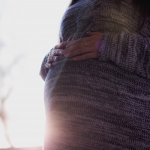An increasing number of studies are using yoga as an adjunctive or primary treatment for a variety of psychiatric symptoms, most commonly depression, anxiety and sleep disturbance. A new study, published online in Schizophrenia Research, explores the use of yoga in women with psychosis.
In this study, 124 women diagnosed within five years of onset of psychosis were randomized into three groups: integrated yoga therapy, aerobic exercise, and a wait-list conditions.
One of the most interesting parts of this study is that functional MRI was used to investigate the effects of yoga and aerobic exercise on the brain. The researchers observed decreased amplitude of low-frequency fluctuation (ALFF) in the precuneus (posteromedial portion of the parietal lobe) in the yoga group but not in the wait-list control (p<0.001) or the aerobic exercise groups (p<0.001). These changes in ALFF correlated with decreases in psychotic symptoms severity. (If you are interested in reading more about the role of the parietal lobe in schizophrenia, this is an interesting article.)
While many studies have shown that yoga may help to treat or at least mitigate the symptoms of a variety of disorders, we don’t fully know how it works. In a commentary published in Medscape, Dr. Matcheri S. Keshavan, Vice-Chair of Psychiatry at Beth Israel Deaconess Medical Center in Boston, Massachusetts comments,”Studies of the brain mechanisms underlying the psychological benefits of yoga are very important, and will improve the scientific credibility of this promising approach to treatment of psychiatric disorders.”
We are particularly interested in the use of yoga in the treatment of pregnant women with mood and anxiety disorders, as a means of eliminating or diminishing the need for medication. The results thus far have been a bit lackluster. A pilot study using yoga for the treatment of women with depression demonstrated that yoga was no more effective than psychoeducation. Another pilot study demonstrated that participants receiving either treatment or usual (TAU) or yoga reported significant improvements in symptoms of depression and anxiety over time; however, yoga was associated with significantly greater reductions in negative affect than TAU. According to a meta-analysis which included six randomized controlled trials of yoga for prenatal depression, the authors concluded that prenatal yoga interventions in pregnant women may be effective in “partly” reducing depressive symptoms. All of these studies suggest that yoga might have potential in this population; however, we clearly need more data in order to figure out how best to use this intervention in this setting.
Ruta Nonacs, Md PhD
Davis K, Goodman SH, Leiferman J, Taylor M, Dimidjian S.A randomized controlled trial of yoga for pregnant women with symptoms of depression and anxiety. Complement Ther Clin Pract. 2015 Aug;21(3):166-72. doi: 10.1016/j.ctcp.2015.06.005. Epub 2015 Jun 9.
Gong H, Ni C, Shen X, Wu T, Jiang C. Yoga for prenatal depression: a systematic review and meta-analysis. BMC Psychiatry. 2015 Feb 5;15:14. doi: 10.1186/s12888-015-0393-1.
Lin, Jingxia et al. Yoga reduces the brain’s amplitude of low-frequency fluctuations in patients with early psychosis results of a randomized controlled trial. Schizophrenia Research. 2016. Published online. doi: http://dx.doi.org/10.1016/j.schres.2016.11.040
Uebelacker LA, Battle CL, Sutton KA, Magee SR, Miller IW. A pilot randomized controlled trial comparing prenatal yoga to perinatal health education for antenatal depression. Arch Womens Ment Health. 2016 Jun;19(3):543-7. doi: 10.1007/s00737-015-0571-7. Epub 2015 Sep 18.
Read More:
Yoga May Be Effective Add-on Therapy for Psychosis in Women With Schizophrenia (Medscape with free subscription)
Aerobic exercise and yoga improve neurocognitive function in women with early psychosis (Nature)








Leave A Comment